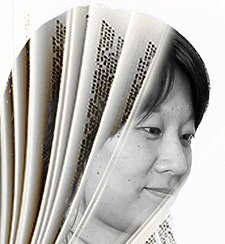Given its particular context, online training may seem more vulnerable to cheating than face-to-face training. In recent years, however, it can resort to “anti-cheat” technologies with increased success. Not to mention that in all cases (online or in-class), the most effective solution is a comprehensive one, which includes not only effective detection and dissuasive sanctions, but also targeted prevention measures (see Countering cheating in eLearning). Here are eight preventative strategies that we can integrate into any online training.
-
Informative anti-cheating materials
When students are unsure of what they are allowed to do in their assignments or exams, they may commit academic misconduct … this is one of the main causes of student cheating. To prevent this “unintentional” cheating, we must ensure that learners are informed in detail about what they can and cannot do when they are evaluated. Integrating short informative videos into the training is a perfect solution! The course professor or a narrator chosen for this role can introduce these capsules.
-
Randomized quizzes
The Learning Management System records a bank of multiple-choice questions to produce test sets that are different from one learner to the next. This process of random selection, which can also be applied to the choice of answers, deters cheating, especially the ones focused on memorizing a solution.
-
Formative quizzes
Thanks to today’s technology, online training facilitates the deployment of evaluation strategies that would be difficult to implement in traditional training. It allows the creation of a series of quizzes from which only the ones where students score the highest are selected. Giving the learners the chance to “fail” reduces the desire to cheat. By crosschecking the learners’ responses to each other, it also helps to identify attempts at group cheating.
-
Quiz timer
When the system identifies in assessments that some of the learners have behaviors that move away from the norm, “a red flag is raised.” The time taken to complete a quiz is one of those things to watch closely; learners who cheat by doing copy and paste, for example, usually complete their exams well before others. The solution: integrate a quiz timer!
-
Open-ended examinations
To promote learning and to prevent cheating, it is recommended to test the learners frequently, but also to diversify the types of assessments in the program. In addition to multiple-choice examinations, it is therefore desirable to offer open-ended questions, even if the evaluation of these is more complex and involves a greater workload on the part of the professor.
-
Personalized assessment
For the learners, it is frustrating to cheat when a job requires a more personal investment. This is the case, for example, if they are asked to share their thoughts on a given subject or to explain their train of thoughts for reaching a certain answer. In addition, since we are in an online environment, why not ask for everything to be done through a video! In general, in these cases, the authenticity is palpable…
-
Peer evaluations
Peer assessment is an opportunity for learners to be proactive in their learning journey and to better understand how they are evaluated. In addition, as everyone learns and discusses the accomplishments of others, it enhances the online sense of community and stimulates everyone’s engagement (see Does a sense of community matter in online training?).
-
Discussion Forum
The discussion forum is one of the conversation tools that fit perfectly into online learning. It can serve as an exercise platform where learners are evaluated according to the quality of their posts. To foster learning, it is important to create a climate of collaboration rather than one of competition.







